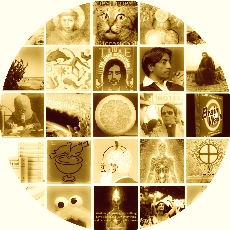
Kritiken av new age-andligheten kommer från olika håll. Den kan handla om att denna typ av andlighet är alltför kommersiell, okristlig, historielös, fördummande, smaklös, etc. Den kritik som är mest relevant för den här hemsidan är ju sådan som görs ur ett psykologiskt perspektiv. Tre av de skarpaste kritikerna av det senare slaget, som jag stött på, är Carl Raschke, Mel D. Faber och Paul C. Vitz.
MD Faber, i sin bok ”New Age Thinking – A Psychoanalytic Critique”, skriver:
”From the psychoanalytic angle, three items stand out clearly; first, we have an overarching presence of infantile omnipotence, the egocentric, unconscious belief in one’s unlimited powers […]; second, we have the urge to fuse regressively with the environment, to attach oneself to the surrounding world (universe) in a way that denies, erases, cancels out the ever-present sense of separation which the cronologically mature individual must cope with during the course of his days on the planet; third, we have a longing for narcissistic inflation, the longing to go about in the belief that one is somehow magical, wonderful […] as opposed to being simply another regular person in the world.
[…]
”I regard New Age thinking as essentially regressive or infantile in nature. It is absorbed, I contend, in matters of symbiotic merger, omnipotence, narcissistic inflation, and in magical thinking and wishing generally. New Age thinking makes war on reality; it denigrates reason; it denies and distorts what I consider to be the existential facts of our human experience; it seeks to restore the past, specifically, the before-separation-world, in an idealized, wish-fulfilling form that has little or no connection to the adult estate.” (Faber, 1996, sid 14-15).”
Vitz (1977) skriver bl a om den nya andligheten att den ”knows no laws at all, since laws imply a law-giver”. Raschke (1987), skriver:
”I would call it [New Age] the spiritual version of AIDS – that is, it destroys the defences, the immune system, the abilty to cope and function.”
